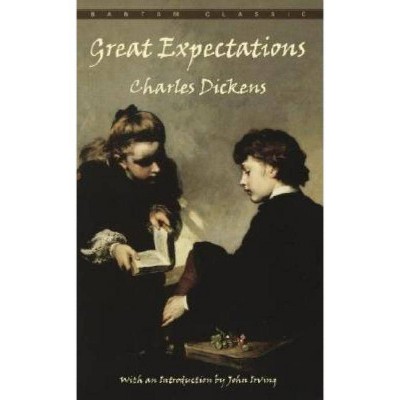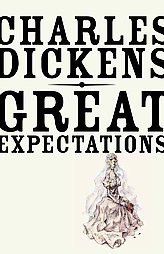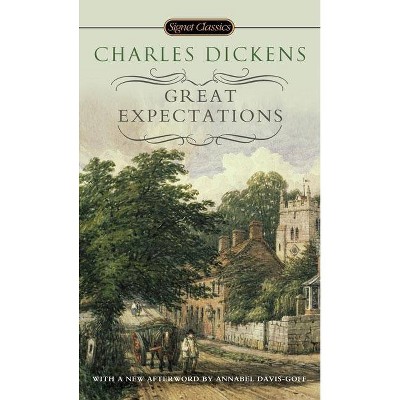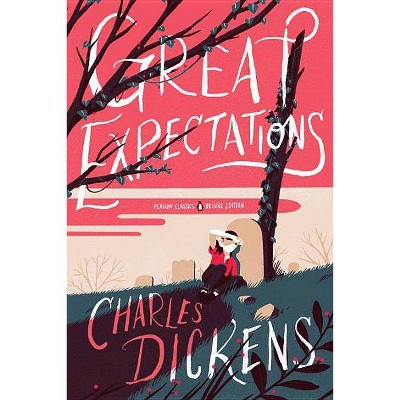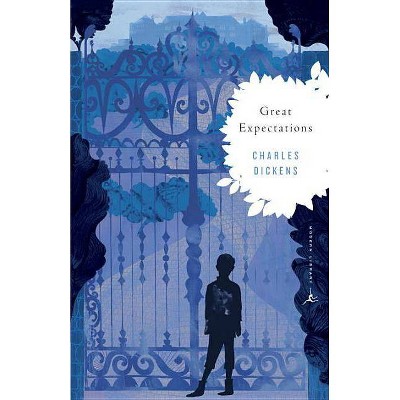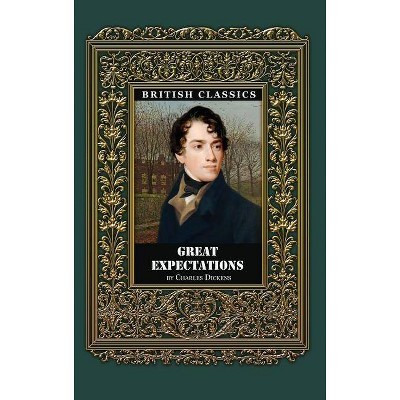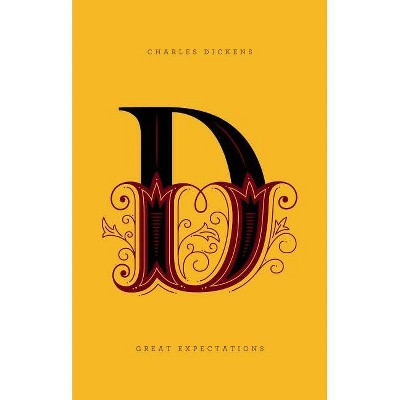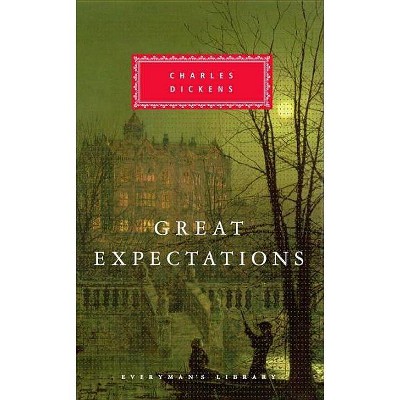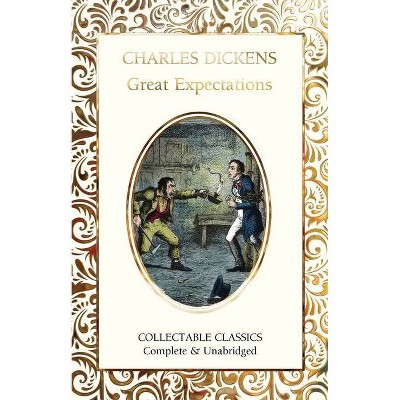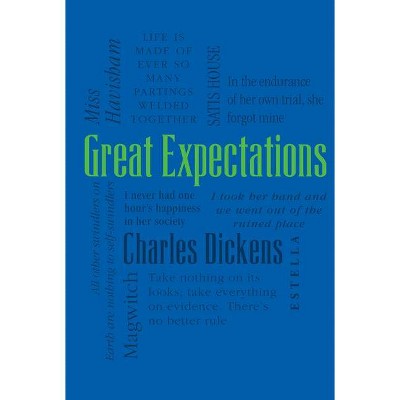Great Expectations - (Penguin Classics) by Charles Dickens (Paperback)
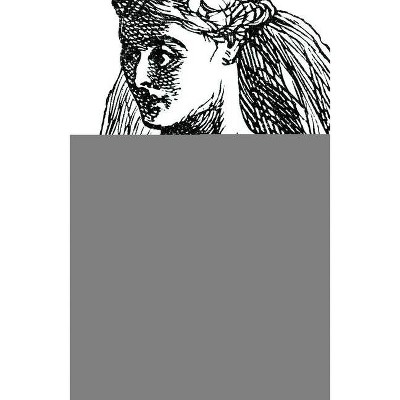
Similar Products
Products of same category from the store
AllProduct info
<p/><br></br><p><b> About the Book </b></p></br></br>"Great Expectations" is at once a superbly constructed novel of spellbinding mastery and a profound examination of moral values. Here, some of Dickens's most memorable characters come to play their part in a story whose title itself reflects the deep irony that shaped Dickens's searching reappraisal of the Victorian middle class.<p/><br></br><p><b> Book Synopsis </b></p></br></br><b>'<i>Great Expectations</i> is up there for me with the world's greatest novels' Howard Jacobson. <b>Nominated as one of America's best-loved novels by PBS's <i>The Great American Read</i></b></b> <p/>Charles Dickens's <i>Great Expectations</i> charts the course of orphan Pip Pirrip's life as it is transformed by a vast, mysterious inheritance. A terrifying encounter with the escaped convict Abel Magwitch in a graveyard on the wild Kent marshes; a summons to meet the bitter, decrepit Miss Havisham and her beautiful, cold-hearted ward Estella at Satis House; the sudden generosity of a mysterious benefactor - these form a series of events that change the orphaned Pip's life forever, and he eagerly abandons his humble station as an apprentice to blacksmith Joe Gargery, beginning a new life as a gentleman. Charles Dickens's haunting late novel depicts Pip's education and development through adversity as he discovers the true nature of his identity, and his 'great expectations'. This definitive version uses the text from the first published edition of 1861. It includes a map of Kent in the early nineteenth century, and appendices on Dickens's original ending and his working notes, giving readers an illuminating glimpse into the mind of a great novelist at work. <p/>For more than seventy years, Penguin has been the leading publisher of classic literature in the English-speaking world. With more than 1,700 titles, Penguin Classics represents a global bookshelf of the best works throughout history and across genres and disciplines. Readers trust the series to provide authoritative texts enhanced by introductions and notes by distinguished scholars and contemporary authors, as well as up-to-date translations by award-winning translators.<p/><br></br><p><b> Review Quotes </b></p></br></br><br>"No story in the first person was ever better told."<br><p/><br></br><p><b> About the Author </b></p></br></br><b>Charles Dickens</b> was born on February 7, 1812, in Landport, Portsea, England. He died in Kent on June 9, 1870. The second of eight children of a family continually plagued by debt, the young Dickens came to know not only hunger and privation, but also the horror of the infamous debtors' prison and the evils of child labor. A turn of fortune in the shape of a legacy brought release from the nightmare of prison and "slave" factories and afforded Dickens the opportunity of two years' formal schooling at Wellington House Academy. He worked as an attorney's clerk and newspaper reporter until his <i>Sketches by Boz</i> (1836) and <i>The Pickwick Papers</i> (1837) brought him the amazing and instant success that was to be his for the remainder of his life. In later years, the pressure of serial writing, editorial duties, lectures, and social commitments led to his separation from Catherine Hogarth after twenty-three years of marriage. It also hastened his death at the age of fifty-eight, when he was characteristically engaged in a multitude of work. <p/><b>David Trotter</b> is Quain Professor of English Language and Literature and Head of Department at University College London. <p/><b> Charlotte Mitchell</b> is Lecturer in English at University College London.
Price History
Price Archive shows prices from various stores, lets you see history and find the cheapest. There is no actual sale on the website. For all support, inquiry and suggestion messages communication@pricearchive.us
